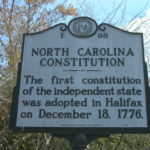Volumes Category
Unconstitutional Perpetual Trusts
Nov. 19, 2014—Unconstitutional Perpetual Trusts ABSTRACT Perpetual trusts are an established feature of today’s estate planning firmament. Yet little-noticed provisions in the constitutions of nine states, including in five states that purport to allow perpetual trusts by statute, proscribe “perpetuities.” This Article examines those provisions in light of the meaning of “perpetuity” as a legal term of...
Perpetuities and the Genius of a Free State
Nov. 19, 2014—Perpetuities-and-the-Genius-of-a-Free-State Commentary on Steven J. Horowitz & Robert H. Sitkoff, Unconstitutional Perpetual Trusts, 67 Vand. L. Rev. 1769 (2014). AUTHOR Associate Professor, SMU Dedman School of Law. For their helpful comments and criticism, I would like to thank Robert Sitkoff and the other participants in the 2014 Vanderbilt Law Review Symposium on “The Role of...
Federal Visions of Private Family Support
Nov. 19, 2014—Federal Visions of Private Family Support ABSTRACT This Article offers a new perspective on the relationship between family and federalism by analyzing why the government—whether state or federal—recognizes family at all. The Article examines the current balance between state and federal authority over family by reviewing the Supreme Court’s recent decisions in Astrue v. Capato,...
Disclaimers and Federalism
Nov. 19, 2014—Disclaimers and Federalism ABSTRACT The beneficiary of an inheritance has the right to disclaim (i.e., decline) it, within limits ordinarily set by state law. This Article examines situations where a beneficiary’s right to disclaim might instead be governed by federal law, as a matter of both existing doctrine and public policy. Issues of federalism arise...
Federalizing Principles of Donative Intent and Unanticipated Circumstances
Nov. 19, 2014—Federalizing-Principles-of-Donative-Intent-and-Unanticipated-Circumstances Commentary on Adam J. Hirsch, Disclaimers and Federalism, 67 Vand. L. Rev. 1871 (2014). AUTHOR Vice Dean, Professor of Law, and Judge Norma L. Shapiro Scholar, Rutgers School of Law–Newark. This Comment was prepared in connection with the Vanderbilt Law Review Symposium on “The Role of Federal Law in Private Wealth Transfer” (February 21,...
Strange Bedfellows: The Federal Constitution, Out-of-State Nongrantor Accumulation Trusts, and the Complete Avoidance of State Income Taxation
Nov. 19, 2014—Strange Bedfellows- The Federal Constitution, Out-of-State Nongrantor Accumulation Trusts, and the Complete Avoidance of State Income Taxation ABSTRACT With the maximum rate of federal income tax at 39.6%, the Obamacare Tax adding another 3.8% tax, and some state income tax rates exceeding 9%, taxpayers in the highest brackets have been seeking to develop strategies to...
Pro and Con (Law): Considering the Irrevocable Nongrantor Trust Technique
Nov. 19, 2014—Pro-and-Con-Law-Considering-the-Irrevocable-Nongrantor-Trust-Technique Commentary on Jeffrey Schoenblum, Strange Bedfellows: The Federal Constitution, Out-of-State Nongrantor Accumulation Trusts, and the Complete Avoidance of State Income Taxation, 67 Vand. L. Rev. 1945 (2014). AUTHOR Whelan W. and Rosalie T. Palmer Professor of Law at Samford University’s Cumberland School of Law. J.D., University of Texas School of Law; B.S., Psychology, Carnegie...
Regulation by Hypothetical
Oct. 17, 2014—Regulation by Hypothetical ABSTRACT A new paradigm is afoot in banking regulation—and it involves a turn toward the more speculative. Previous regulatory instruments have included geographic restrictions, activity restrictions, disclosure mandates, capital requirements, and risk management oversight to ensure the safety of the banking system. This Article describes and contextualizes these regulatory tools and shows...
The Language of Mens Rea
Oct. 17, 2014—The Language of Mens Rea Appendix B: Full Text of Scenarios in the Revised MPC Definitions Experiment Appendix B: Full Text of Scenarios in the Signal Variant and Revised Recklessness Experiments ABSTRACT This Article empirically tests two key questions. First: How sensitive are jurors to variations in the language that delineates the criminal mental state...
Speech Beyond Borders: Extraterritoriality and the First Amendment
Oct. 17, 2014—Speech Beyond Borders: Extraterritoriality and the First Amendment ABSTRACT Does the First Amendment follow the flag? In Boumediene v. Bush, the Supreme Court categorically rejected the claim that constitutional rights do not apply at all to governmental actions taken against aliens located abroad. Instead, the Court made the application of such rights, the First Amendment...
Trademarked for Death? A Licensee’s Trademark Rights After an Executory Contract is Rejected in Bankruptcy
Oct. 17, 2014—Trademarked for Death? A Licensee’s Trademark Rights After an Executory Contract Is Rejected in Bankruptcy ABSTRACT Upon declaring bankruptcy, a licensor of a trademark is given the option to “reject” its license agreements with trademark licensees. Due to the absence of trademarks from the definition of “intellectual property” in the Intellectual Property Licenses in Bankruptcy...
Keep Your Friends Close: A Framework for Addressing Rights to Social Media Contacts
Oct. 17, 2014—Keep Your Friends Close: A Framework for Addressing Rights to Social Media Contacts ABSTRACT The proliferation of social media poses numerous new challenges that require the law to find creative solutions. One pressing legal question is who has the superior right to social media contacts as between an employee who manages a company’s social media...
Confrontation and the Law of Evidence: Can the Language Conduit Theory Survive in the Wake of Crawford?
Oct. 17, 2014—Confrontation and the Law of Evidence: Can the Language Conduit Theory Survive in the Wake of Crawford? ABSTRACT The interrogation of non-English-speaking defendants by government officials usually requires the aid of an interpreter. In the event that the interpreter is unavailable to testify to the truth of his translations in court and a third-party witness...
“Sticky” Arbitration Clauses? The Use of Arbitration Clauses After Concepcion and Amex
Jun. 14, 2014—Sticky Arbitration Clauses? We present the results of the first empirical study of the extent to which businesses have switched to arbitration after AT&T Mobility LLC v. Concepcion. The Supreme Court’s decision in Concepcion led commentators to predict that every business soon would use an arbitration clause, coupled with a class arbitration waiver, in their...
Enjoining Abuse: The Case for Indefinite Domestic Violence Protection Orders
Jun. 14, 2014—Enjoining Abuse- The Case for Indefinite Domestic Violence Protection Orders While countless studies demonstrate the complex and dangerous nature of intimate partner abuse, most jurisdictions permit only the entry of yearlong domestic violence protection orders. Judges may assume that danger ceases once the order takes effect, but evidence of the recurrent nature of violence demonstrates...
In Defense of American Criminal Justice
Jun. 14, 2014—In Defense of American Criminal Justice



